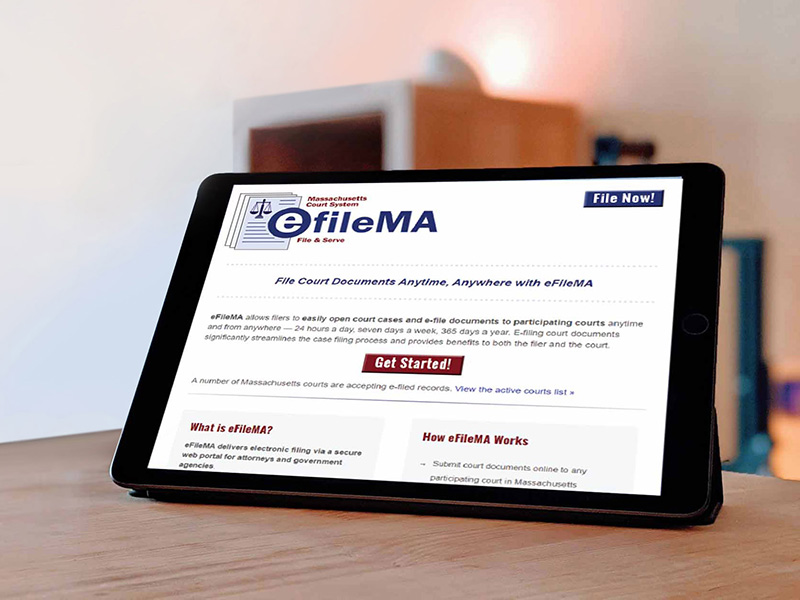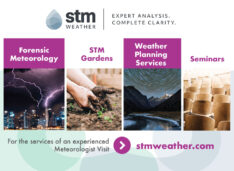The Court Ordered a Continuance. Now What?
| . Posted in News - 0 Comments
By Peter Vickery, Esq., Legislative Affairs Counsel
Good things come to those who wait, as the saying goes. If so, somewhere in Massachusetts there must be a warehouse full of boxes (each one awaiting to delivery to a landlord with a pending summary-process case) labeled “Good Things.” Even before the COVID-19 emergency, summary process could take months. But once the pandemic started, because of Chapter 257 of the Acts of 2020, it involved even more waiting. (Update April 14, 2022: The Chapter 257 law was extended from Jan. 1, 2023, to March 1, 2023 by the April 1, 2022, budget amendment. This delayed court cases while an application for rental assistance is pending.)

We encourage landlords to avoid a lengthy eviction process whenever possible, but sometimes, you have to go to court. Keeping your costs as low as possible is key.
Image License: Unsplash
Chapter 257 provides that in every nonpayment case where the tenants have applied for a subsidy, the judge has to order a continuance. The statute says “shall grant a continuance” not “may grant,” and the word “shall” means “must.” The judge has no discretion as to whether to continue the case while the relevant agency processes the tenants’ subsidy application.
By that stage, the tenants (through their publicly funded lawyer) will have served their answer to the complaint. The answer will likely include a demand for a jury trial. If the tenants do demand a jury trial, many months will go by—possibly without receiving any payments from the tenants—during which the landlord will still have to pay all the expenses associated with housing the tenants. Perhaps the subsidy will come through and cover all the arrears, but more arrears will build up during the wait for the jury trial.
Here is one way to try to take some control and at least limit your losses.
Motion for Use and Occupancy
Consider this hypothetical example.
Let’s say you served a notice to quit for nonpayment of rent, and then commenced summary process. On the day of your first court event (a Zoom conference with a housing specialist) the tenants served their answer, replete with jury-trial demand and applied for a subsidy, e.g., Residential Assistance for Families in Transition (RAFT). At that point, the judge continued the case. One thing that you can do while waiting for the RAFT agency to approve or deny the application is prepare a motion for use-and-occupancy payments.
Since the decision of the Supreme Judicial Court (SJC) in the case of Davis v. Comerford (2018), a case in which MassLandlords filed a friend-of-the-court brief, judges have been able to order tenants to make use-and-occupancy payments either into court’s escrow account or directly to the landlord. The SJC set out a non-exhaustive list of factors for the judge to consider when weighing a landlord’s motion for use and occupancy. The very first factor on that list is: “[T]ime lost in regaining [real property] from a party in illegal possession can represent an irreplaceable loss to the owner.” The other factors are:
- the amount of rent owed;
- the number of months with no payments/partial payments;
- the landlord’s monthly obligations;
- whether the landlord faces the threat of foreclosure;
- the tenants’ likelihood of success on the merits of defenses/counterclaims;
- whether the tenants have been withholding rent because of conditions or have had to repair and deduct the cost from the rent;
- whether any code violations are de minimis or substantial; and
- whether the tenants are indigent.
If you decide to file a motion for use and occupancy, be prepared to prove your case. This means providing evidence of your expenses, possibly as exhibits attached to an affidavit. These expenses could include mortgage payments on the property and the average maintenance costs per month.
You should also be prepared for the tenants’ arguments against the motion. These will likely include evidence of their financial hardship and allegations of code violations. In addition, be prepared to wait for the judge to take the matter under advisement, a legal term of art that translates into pain English as “you are going to have to wait some more.”
Bill to Prevent Use and Occupancy Payments
If you still have time on your hands after arguing your use and occupancy motion, you could devote some of that time to calling your state representative and state senator about a bill that would effectively ban use-and-occupancy payments. The bill, HD 3030, sponsored by Representatives Frank Moran (D, 17th Essex) and Kevin Honan (D, 17th Suffolk) would create a new defense for tenants in summary process cases. Here is the relevant text:
(d) A defendant in any COVID-19 Eviction shall have a complete defense (“COVID defense”) to a claim to recover possession where any portion of the non-payment of rent or use and occupancy, or any portion of the mortgage loan payment was due to a financial hardship related to or exacerbated by the COVID-19 emergency; and either
(1) eviction would likely result in the defendant becoming homeless, needing to move into a homeless shelter, or needing to move into a new residence shared by other people who live in close quarters; or
(2) the defendant household includes a minor child, a handicapped person (as defined at Section 9 of Chapter 239 of the General Laws), an individual sixty years of age or older, or an individual with any medical condition the Centers for Disease Control has deemed to cause increased risk of experiencing severe illness from a COVID-19 infection.
Looking at (d)(2), you may be asking how Section 9 of Chapter 239 defines “handicapped person.” The answer is that it covers anyone who:
(a) has a physical or mental impairment which substantially limits such person’s ability to care for himself, perform manual tasks, walk, see, hear, speak, breathe, learn or work; or
(b) has a physical or mental impairment which significantly limits the housing appropriate for such person or which significantly limits such person's ability to seek new housing; or
(c) would be eligible for housing for handicapped persons under the provisions of chapter one hundred and twenty-one B.
Note that if somebody has a learning disability that substantially limits their ability to learn, e.g., dyslexia, they may come within the statutory definition of “handicapped person.”
What does the phrase “an individual with any medical condition the Centers for Disease Control has deemed to cause increased risk of experiencing severe illness from a COVID-19 infection” mean? Here is the current list from the CDC:
- cancer
- chronic kidney disease
- COPD (chronic obstructive pulmonary disease)
- Down syndrome
- heart conditions, such as heart failure, coronary artery disease, or cardiomyopathies
- immunocompromised state (weakened immune system) from solid organ transplant
- obesity (body mass index [BMI] of 30 kg/m2 or higher but < 40 kg/m2)
- severe obesity (BMI ≥ 40 kg/m2)
- pregnancy
- sickle cell disease
- smoking
- Type 2 diabetes mellitus
Yes, smoking is on the list. So, under HD 3030, smoking will be a complete defense sufficient to defeat a landlord’s claim for possession. I am not for one moment suggesting that the drafters of this bill are actually in the pay of Big Tobacco. But if they were, what would they do differently?
If HD 3030 Becomes Law
As a practical matter, under HD 3030 the landlord would bear the burden of proving both that the tenants’ financial hardships are not “related to or exacerbated by the COVID-19 emergency” and that either nobody in the household has an impairment that substantially limits their ability to learn/work or smokes or that the tenants’ next residence will not be “shared by other people who live in close quarters.”
By the way, it is not necessary for the tenants themselves to be living in close quarters (whatever that means, exactly), only that they share a residence with other people who live in close quarters. The landlord would have to show that if the court evicted the tenants, the tenants would not end up living in a residence with other people who live in close quarters. If a landlord fails to demonstrate that the tenants’ financial hardships were not exacerbated by the COVID-19 emergency and that if evicted they will not end up in a building with other people who live in close quarters (and it is hard to imagine how one could succeed), the tenants will have the benefit of this new defense, which will be a complete defense.
This is a very important point. The term “complete defense” means that if the tenant establishes the defense (or, rather, if the landlord fails to disprove it), the judge will not be allowed to award possession to the landlord.
The bill would also prohibit judges from ordering tenants to make use-and-occupancy payments without first “conducting a hearing and explicitly finding that the tenant is not reasonably likely to establish the defense set out at subsection (d).” So, the burden would be on landlords seeking use and occupancy payments during the months-long wait for jury trial not only to establish the factors listed in Davis v. Comerford but also to prove that the tenants’ financial hardships were not exacerbated by the COVID-19 emergency. They would also need to prove that if evicted the tenants will not end up in a building with other people who live in close quarters or that there is nobody in the household who is under the age of 18, or pregnant, or who has a learning disability, or smokes, or who has cancer or obesity. It is hard to exaggerate the heaviness of that burden.
In a nutshell, HD 3030 would undo Davis v. Comerford.
Conclusion
For the time being, while landlords wait for a jury trial, they can ask the judge to order the tenants to make use and occupancy payments. The landlords bear the burden of proof and there is no guarantee of success, but at least they can try. If HD 3030 becomes law, that will no longer be an option.
Community Mediation
Massachusetts now requires court mediation as a step in the court’s two-tier eviction process. The Massachusetts Office of Public Collaboration (MOPC) uses state funding to train and supervise volunteer mediators in a different, out-of-court mediation process. Out-of-court mediation is free and may produce better results.
In FY2024, the Mass. Housing Mediation Program, part of the MOPC, oversaw 1,487 mediation cases. HMP surveyed 958 mediation participants:
- 70% of mediated cases reached an agreement;
- 91% of participants surveyed were satisfied with the process; and
- 81% preferred mediation over alternative services.
There are no income eligibility requirements. LLCs, Incs, and other entities do not have to hire an attorney.




